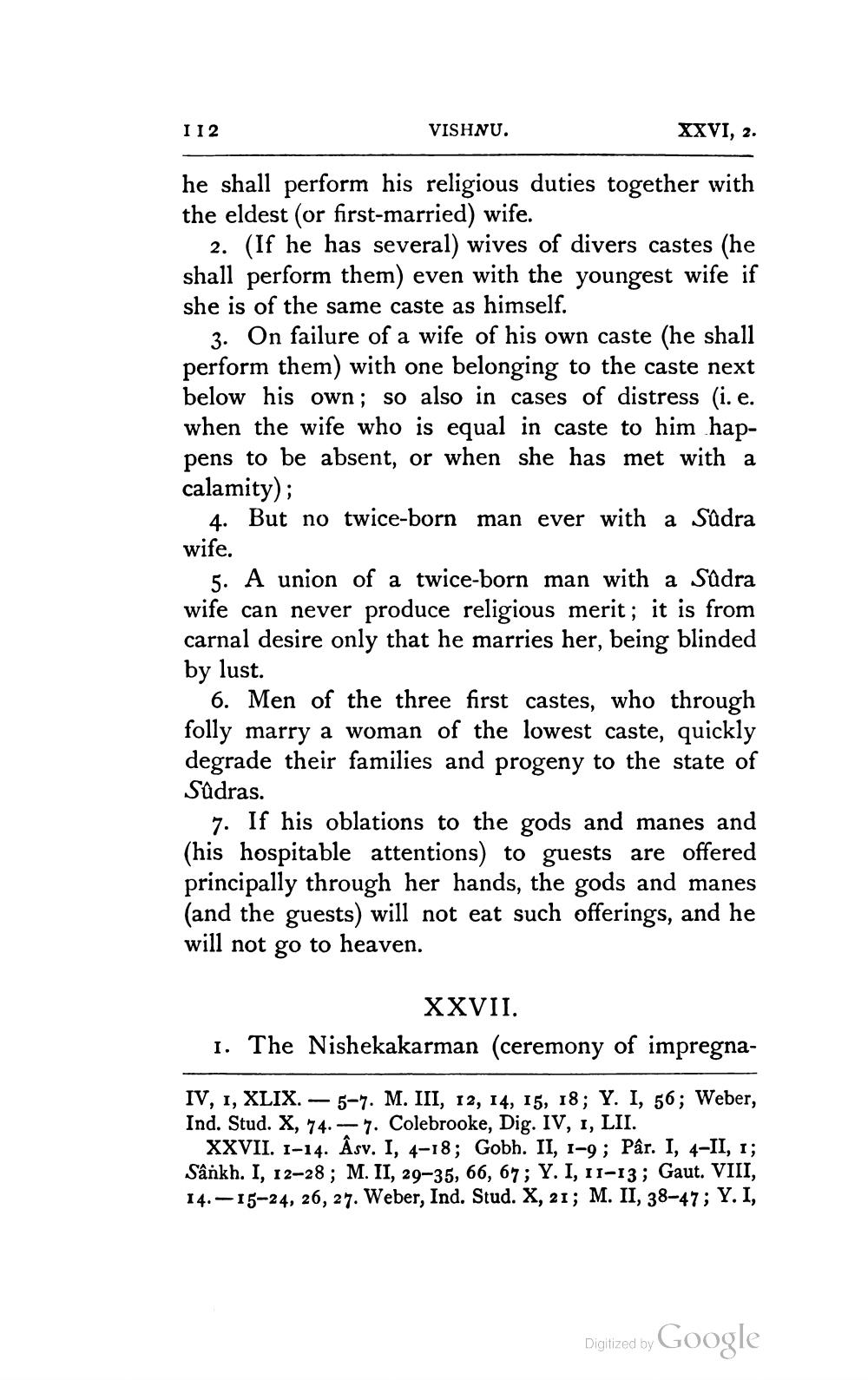________________
I 12
VISHNU.
XXVI, 2.
he shall perform his religious duties together with the eldest (or first-married) wife.
2. (If he has several) wives of divers castes (he shall perform them) even with the youngest wife if she is of the same caste as himself.
3. On failure of a wife of his own caste (he shall perform them) with one belonging to the caste next below his own; so also in cases of distress (i. e. when the wife who is equal in caste to him happens to be absent, or when she has met with a calamity);
4. But no twice-born man ever with a Sûdra wife.
5. A union of a twice-born man with a Sûdra wife can never produce religious merit; it is from carnal desire only that he marries her, being blinded by lust.
6. Men of the three first castes, who through folly marry a woman of the lowest caste, quickly degrade their families and progeny to the state of Sûdras.
7. If his oblations to the gods and manes and (his hospitable attentions) to guests are offered principally through her hands, the gods and manes (and the guests) will not eat such offerings, and he will not go to heaven.
XXVII.
1. The Nishekakarman (ceremony of impregna
IV, 1, XLIX. — 5—7. M. III, 12, 14, 15, 18; Y. I, 56; Weber, Ind. Stud. X, 74.-7. Colebrooke, Dig. IV, 1, LII.
XXVII. 1-14. Âsv. I, 4-18; Gobh. II, 1-9; Pâr. I, 4-II, 1; Sânkh. I, 12-28; M. II, 29-35, 66, 67; Y. I, 11-13; Gaut. VIII, 14.-15-24, 26, 27. Weber, Ind. Stud. X, 21; M. II, 38-47; Y. I,
Digitized by Google




